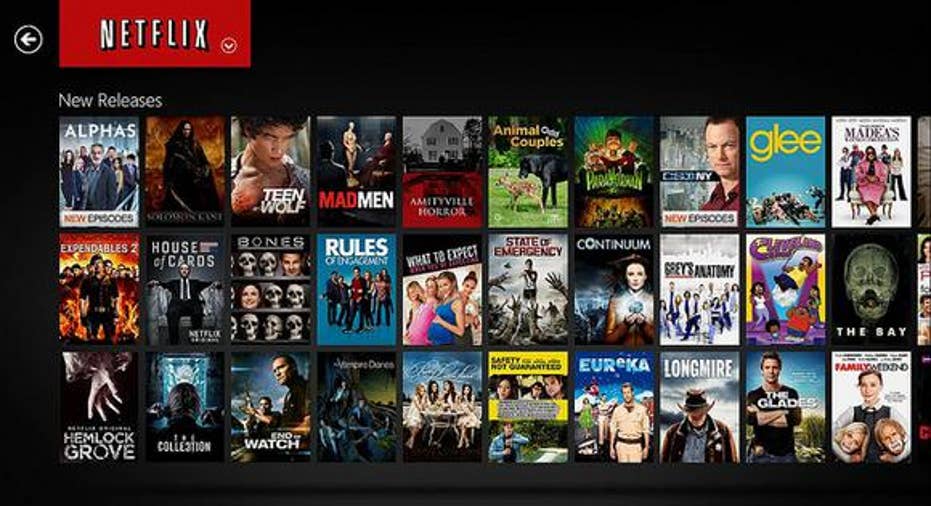Netflix and Amazon: Wall Street's Betting Against a Repeat Performance

The only two members of the S&P 500 to double in 2015 -- Amazon.comand Netflix-- kicked off the new year by going the other way after a pair of analyst downgrades. Everyone was loving the meat in the middle of the FANG sandwichlast year, but 2016 is apparently going to be different.
Baird Equity Research lowered its rating on Netflix to neutral, slicing its price target from $128 to $115. Baird's new goal is essentially where the stock was at the end of last year. The fear there is that with U.S. subscriber growth decelerating that too much is riding on international expansion. There could be execution risks as Netflix carries out its plan for global domination. Baird also singles out rising content costs and competitive threats as concerns heading into the near future.
Monness Crespi Hardt is the one backing away from Amazon, also lowering its once bullish rating to neutral on the leading online retailer. There are no competitive fears with Amazon. It once again dominated the holiday shopping season. However, with the stock soaring 119% last year, the fear here is that investor enthusiasm in owning Amazon will cool off given the lofty valuation.
The concerns in both downgrades stem primarily on valuation. Baird may have voiced potential operating hiccups on the horizon for Netflix, but the stock probably wouldn't have been a downgrade candidate if it hadn't seen its stock soar 134% in 2015. This is the second time in three years that Netflix leads the S&P 500, but the stock has been historically volatile.
It's rare to see stocks so large -- Netflix's market cap is approaching $50 billion and Amazon is six times as valuable -- double in a year when the market is flat. However, we can't just assume that the party's over because you have to learn to write a new year every time you're cutting a new check.
It's easy to see why Wall Street pros may see things differently. Issuing the downgrades on Monday morning -- just before the first trades of 2016 -- offers them the opportunity to boast about getting it right in 2015 when they were bullish. It also makes a clean break for the year ahead when market sentiment for the market darlings in tech could sour. However, it's also dangerous to bet against either company.
Netflix is expecting to have closed out 2015 with 16.93 million more subscribers than it had when the year began. There are plenty of new streaming television platforms launching these days, but has any of them gained nearly 17 million premium users over the past year? I doubt it. Netflix is widening its lead, and those escalating content costs that trouble Baird will only keep the competition shrinking in the rearview mirror. It may seem daunting to see $10.4 billion in streaming content obligations at Netflix, but that's also part of its invisible moat. No one is going to invest that much in building a video catalog, making it impossible to compete on content. Good luck competing on price, and there's no way to underestimate the power of all of the viewing data that Netflix has amassed over the years. The premium streaming war is over. Netflix won.
The same can be said about Amazon in online shopping. There is no amount of money that can help an online or offline retailer catch up to the reliable infrastructure and customer data that Amazon has erected. Amazon Prime is the equivalent to Netflix's streaming smorgasbord, a platform so disruptive that any potential rival trying to emulate the model fails out of the gate.
Netflix and Amazon investors shouldn't be spoiled. It will be very hard for either stock to double again this year. However, both companies have earned better than neutral ratings in a ho-hum market. They dominate. They will continue to dominate.
The article Netflix and Amazon: Wall Street's Betting Against a Repeat Performance originally appeared on Fool.com.
Rick Munarriz owns shares of Netflix. The Motley Fool owns shares of and recommends Amazon.com and Netflix. Try any of our Foolish newsletter services free for 30 days. We Fools may not all hold the same opinions, but we all believe that considering a diverse range of insights makes us better investors. The Motley Fool has a disclosure policy.
Copyright 1995 - 2016 The Motley Fool, LLC. All rights reserved. The Motley Fool has a disclosure policy.



















